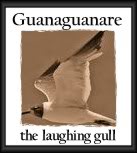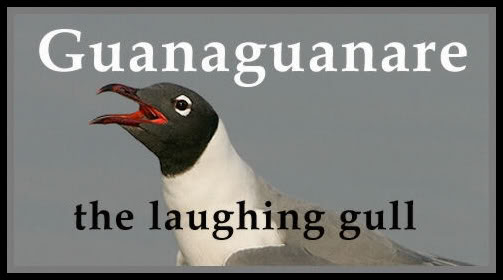IV.
THE AUTHENTIC LEGEND OF M'AN GROSDENT
(As told by an Irish Dominican Father)
Oh, M'an Grosdent was a witch indeed.
And a grand old witch was she;
She sold her soul to the Devil twice.
And cheated him of his fee.
But when it came to the third compact.
The Devil he swore an oath.
That he would have M'an Grosdent's soul.
Though she were never so loath.
Oh M'an Grosdent, Dent M'an Grosdent!
He gave her the girth of the good green earth,
And the height of the clouds that soar.
And a voice that spoke like a thunder peal.
Or the wild Tornado's roar;
He gave her the speed of the rushing winds,
And the strength of the whelming seas;
And teeth that could bite through the hardest rock,
For she bargained for all these.
Oh M'an Grosdent, Dent M'an Grosdent!
Seven hundred years he granted her.
To do as she should please;
The earth was weary of her deeds.
Aweary were the seas.
She slew the infant in its cot.
The monarch on his throne.
She grew and she slew, till the years ran through
And the Devil came for his own.
Oh M'an Grosdent, Dent M'an Grosdent!
p. 10
But when the Devil saw her there, Tis sore afraid was he;
For she had grown so tall, so stout.
He readied scarce to her knee
"Oh come with me, Machree," says he,
"And come with me, my dear:
"Have I not done your full pleasure,
"So many and many a year?"
Oh M'an Grosdent. Dent M'an Grosdent!
"My full pleasure," quoth she, "forsooth!
"Small pleasure have I known;
"But if I need must go with you,
"Tis go I must, ochone!
"So make your back both strong and broad,
"And fly with me with heed;
"For I'm old and frail, and if I fall,
"Oh, 'twill be the Devil indeed! ''
Oh, M'an Grosdent, Dent M'an Grosdent !
The Devil he flew o'er Montserrat,
With M'an Grosdent on his back ;
But when he saw Tucuche's height.
He cried, "Ochone, alack!
"I never can fly so high," said he.
"With such an awful load;"
And he turned from the hills, and made for the isles.
And he spilt her on the road!
Oh, M'an Grosdent, Dent M'an Grosdent !
At Diego Martin, 'tis known for certain.
She came down with a thud;
For witches there, enough and to spare.
Have sprung from the witch's blood.
Her heart is buried at Hart's Cut,
Her head is Gasparee ;
And there in sooth, you may see her tooth.
Oh, a good mile out at sea.
Oh, M'an Grosdent, Dent M'an Grosdent !
p. 11
And do you doubt this legend old?
Or is it proof you crave?
Go, visit Gasparee, my child.
And see the wondrous cave,
Oh, that is M'an Grosdent's brain-pan;
The little Cave's her eye;
And if you don't believe it now.
Why - neither in truth do I!
Oh, M'an Grosdent, Dent M'an Grosdent!
S.
NOTES
The Count took us to Pointe Baleine, where the remains of an old whale-oil refinery still stand to explain the name. What we went to see, however, was "The Caves" : (see Legend VIII. )
Towards the evening the parish priest of Diego Martin and the Isles came to call, and brought with him one of the Fathers from Saint Mary's College. Two such brogues you never heard! One could observe Scribbler assimilating them for literary purposes.
The next legend was bound to be "brogued."
A rock in the First Boca is pointed out to visitors as "M'an (i.e., Madame) Teteron's Tooth." Teteron Village, called after a respectable French-Creole family of the same designation, is close by. Hence the nickname. No harm is thought of it. Who the individual ancestress was, nobody knows. Nobody cares either. The rock has always been called so. It is rather a family distinction.
Now, had Scribbler invented something complimentary, something nice, to explain the size of the lady's tooth, probably the Teteron family would have complimented him. With a fine mackerel, say. Or a fair-sized grouper. When not too large, a grouper, done with a good wine sauce (Vieille au vin), is a most delicious dish.
No, no: that is not Scribbler's way.
p. 12
The name Teteron is not sonorous enough for him. Also he is a Royalist. Round-heads, Cromwell's men, are his historical antipathies. French Round-heads, Têtes-rondes, even in the twentieth century and the West Indies, and though the best Catholics in the world, find Scribbler indifferent, not to say hostile. To work up a lagging inspiration he must change the name.
Now, to me, this appears mean. The Teteron family were in possession, so to speak, and entitled to mention. Still, blessings sometimes come in disguise, and so it happened to the Teterons. Scribbler's explanation of the Tooth was not nice, not complimentary.
You will read it in the legend. Endorse it personally, I will not! M'an Gros-Dent (Grosse-Dent) and her creator, must settle matters between themselves. I am thankful, at any rate, that the respectable M'an Teteron is out of it.
"Diego Martin Witches." Father O'Dowd, who is a wag, stuffed Scribbler with tales about women who wrote Latin, yet could not read a word of English, and such-like fairy tales. Scribbler, having no sense of humour, took it all senously.
"Hart's Cut," however, is a deliberate attempt to mislead the reader. The word is "Hart,'' not heart, to begin with. Also it was clearly explained to Scribbler that it stood for a gaoler of the name of Lovelace-Hart, who employed the prisoners on Carrera Island, a penal settlement halt a mile away, to make the cut or canal which bears his name. Scribbler was really too unscrupulous.
Tucuche is commonly reputed to be the highest mountain in the island. Cerro Naranjo, in Toco, and Aripo, near Arima, however, dispute the claim.
Montserrat is a lowish range in the centre of the island. On its slopes flourish many nine cocoa estates, belonging to old French-Creole families, including the Count's. According to him, the allegation that the Devil flew o'er Montserrat is likely to be resented. They are all sportsmen and good Catholics, and would have shot the Devil at sight, had he really come there.
"Neither in truth do I." This is the most bare-faced hoax of all. I think it decidedly unfair of Scribbler to have gone away, and left me to bear the brunt of publishing it. Only an elevated consciousness of rectitude, besides my plighted word to the deceased, induces me to shoulder die responsibility.
I.
p. 13
SOURCE: Legends of the Bocas, Trinidad. By A.D. Russell, London: Cecil Palmer, 1922. pp. 10-13
..............................................................................................................................
"Patria est communis omnium parens" - Our native land is the common parent of us all. Keep it beautiful, make it even more so.
Blessed is all of creation
Blessed be my beautiful people
Blessed be the day of our awakening
Blessed is my country
Blessed are her patient hills.
Mweh ka allay!
Guanaguanare













0 comments:
Post a Comment